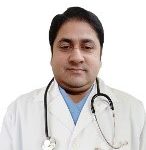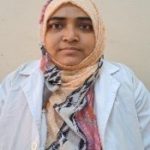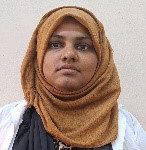Department of Biochemistry
At the end of the course in Biochemistry the students should be able to:
· acquire the basic & integrated knowledge on major biomolecules, enzymes, hormones and nutrients with fundamental chemical process within body system upon which life depends.
· demonstrate skills in performing and interpreting Biochemistry laboratory tests and procedures with emphasis on those used in Bangladesh.
· demonstrate skills in using the modern biochemical appliances.
· equip themselves with requisite knowledge for higher studies and research.
· develop sound attitude towards the need for continuing self-directed learning.
·
List of Competencies to acquire:
· familiar with the biomolecules forming the structure of human body, their functions and role in health and diseases.
· explain the role of enzymes in the diagnosis and treatment of diseases.
· identify the source of energy in human body and the process by which this energy is derived from food.
· explain metabolism of the body in fed and fasting state and consequences of prolonged starvation.
· explain the role of liver in metabolism and derangement of metabolism in impaired liver function. Explain dyslipidemia and their clinical consequence
· describe the water and electrolyte content of human body and their functions. Identify the types, causes and consequences of dehydration and over hydration. Explain the causes the consequences of electrolyte imbalance.
· describe the sources of acids and bases in our body and the mechanism of their normal balance. Explain the causes and consequences of acidosis and alkalosis and the parameters to diagnose them.
· demonestrate their basic conception about nutrients, balanced diet. Describe the common nutritional disorders of our country and their causes and consequences.
· describe the components of balanced diet and explain the basic principles of making a diet chart.
· attain the skill to assess nutritional disorders anthropometrically.
· explain the basis of genetics and molecular biology and the common genetic disorders and explain the modern technology in molecular biology in the diagnosis and treatment of diseases. diagnose diabetes mellitus, impairment of renal, liver and thyroid functions.







